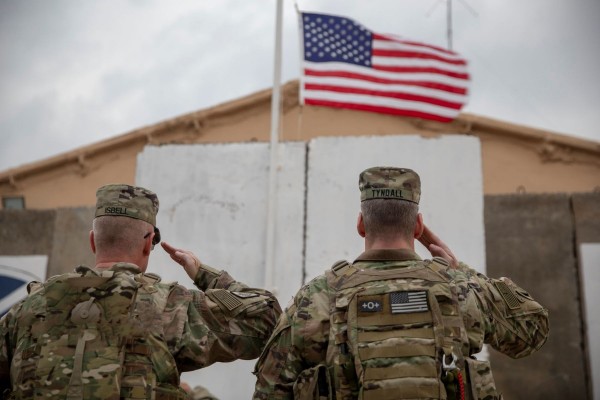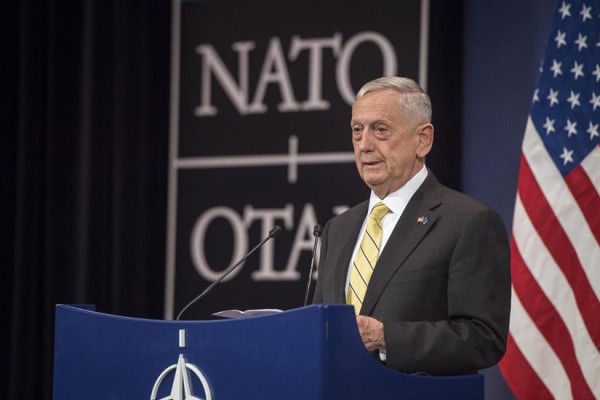Financial war and its discontents
By confiscating frozen Russian funds and giving them to Ukraine, the West could be shooting itself in the foot

Panorama of Moscow Kremlin from Bolshoi Kamenny bridge. Photo from Wikimedia Commons.
Power and money go together. First the Dutch, then the British, and more recently the Americans, have succeeded in building financial institutions that have promoted their power on a global scale. For the past few decades, the Western banking system, the widespread use of the American dollar as an international form of exchange, and the activities of Western-dominated financial institutions, such as the International Monetary Fund (IMF), have given the United States and its allies a huge advantage over any potential competitors, such as the Soviet Union during the Cold War.
This financial system has provided the West with huge benefits, both directly and indirectly. By facilitating exchange and providing a stable basis for trade, the international financial system has also enabled the process of globalization from which Western states have profited enormously. One might imagine, therefore, that Western leaders would consider it a matter of the highest priority to maintain the system’s reputation for impartiality. As the developing world becomes richer, it serves the West’s interests to keep it within the existing structure rather then develop alternative structures outside of its control. This seems obvious. And yet, for the benefit of short-term political gain, Western states seem bent on doing the absolute opposite.
A few years ago, for instance, Western countries wanted the IMF to lend money to Ukraine to help it avoid bankruptcy. The problem was that Ukraine had failed to pay back a $3 billion loan given by Russia, and under the IMF’s rules it could not lend money to a state that was in arrears to another state. The IMF (whose board is dominated by Western countries) found a way around this problem. It changed its rules to allow loans to countries in arrears. The loan to Ukraine then went ahead.
It is popular nowadays to talk about a “rules-based international order.” But an order in which one set of people can change the rules whenever it suits them is hardly a “rules-based” one. Nor is this the only example of Western states using their dominance of the financial system to pursue geopolitical objectives in apparent contradiction of the “rules” they claim to champion.
In a notorious case, after Venezuelan opposition leader Juan Guaidó declared himself acting president in 2019, the American and British governments recognized him as such and then transferred Venezuelan assets held in their countries to Guaidó’s control. Guaidó is no more president of Venezuela than I am, but by the simple act of declaring him such, the Americans and British were able to take billions of dollars from the Venezuelan state and give them to him. In principle, there’s no reason why anybody else couldn’t do the same thing with regard to other countries. It is hardly an example of “order.”
Similarly, in February this year US President Joe Biden released $7 billion of Afghan government funds frozen in US banks, but decreed that half of it should be paid to victims of the terrorist attacks of September 11, 2001. This led to accusations that the United States was in effect “stealing” Afghan money. As Dan Drezner, a professor of international politics at Tufts University, remarked in The Washington Post: “The United States government is looting assets legally held by another sovereign government to reward its own citizens. If another country pulled this move—and another country might be tempted to try it using this case as a precedent—it would be viewed as outright theft. It makes it much easier for other great powers to act in a similarly imperial manner.”
Needless to say, foreign countries and their citizens have taken note that their money is not safe in Western hands. Aware of this, several years ago the Russian government began moving its assets out of Western banks, and out of US dollars and into other currencies. Unfortunately for the Russians, though, they didn’t do this nearly fast enough, and at the time of the invasion of Ukraine in February the Russian government, as well as Russian companies and individuals, still had several hundred billions of dollars in Western financial institutions. Following the invasion, these funds were frozen.
In response, the Russians have accused the West of theft. Strictly speaking, this isn’t accurate as the funds are only frozen and could in theory be released back to Russian control, although one must doubt if this will ever happen. The accusation of theft may, however, soon come closer to the truth if the European Union goes ahead with a threat to confiscate frozen Russian assets and give them to Ukraine.
Following a meeting of the European Council last week, Chairman Charles Michel (who has long favoured such a policy) declared that “We must look into the frozen assets and their possible use for the reconstruction of Ukraine.” He added that the issue might be raised at an international conference on assistance to Ukraine to be held on October 25. Meanwhile, a paper issued by the International Working Group on Russian Sanctions last week argued for “Russian central bank assets frozen by the West to be seized and diverted to Ukraine as reparations.”
One may argue that transferring Russian money to Ukraine is morally just. The Russians have illegally invaded Ukraine and caused tens, maybe hundreds of billions, of dollars of damage. It is only fair that they pay for the harm they have done. But there is a reason why people call for a “rules-based” international order not a “justice-based” one. There is no neutral arbiter able to say who and what is just. If having justice on your side allows you to bend the rules, everybody can claim to be just and any semblance of order collapses. After all, there must be many countries who feel that the US, UK, and other Western states have harmed them. Would the Brits and Americans think that it was all right for others to take British and American assets and redistribute them to their victims? One imagines not.
It remains to be seen whether it is legally possible to confiscate and redistribute Russian funds. But even if it is, one may doubt whether it is wise. Little by little, such acts have the effect of sending a message that the international financial system is subservient to Western political interests. This, of course, will hardly be a revelation to many. Indeed, it has long been a criticism of the way the financial world operates. But up to now, critics have had to accept the system as it is because of the lack of alternatives. This is now changing. The more we abuse the system to suit ourselves, the more we encourage others to separate themselves from it and set up their own parallel systems, thereby detaching themselves from our control while also undermining the globalization that has so far served us so well.
In this way, for the sake of short-term advantage the West is sabotaging its own long-term interests. This is a very slow process that has already been underway for some time. But the reaction to the war in Ukraine is arguably accelerating moves in that direction, to the detriment of the West. While European leaders may wish to do what is “just,” they should take care that they don’t shoot themselves in the foot in the process.
Paul Robinson is a professor in the Graduate School of Public and International Affairs at the University of Ottawa and a Senior Fellow at the Institute for Peace and Diplomacy. He is the author of numerous works on Russian and Soviet history, including Russian Conservatism, published by Northern Illinois University Press in 2019.










